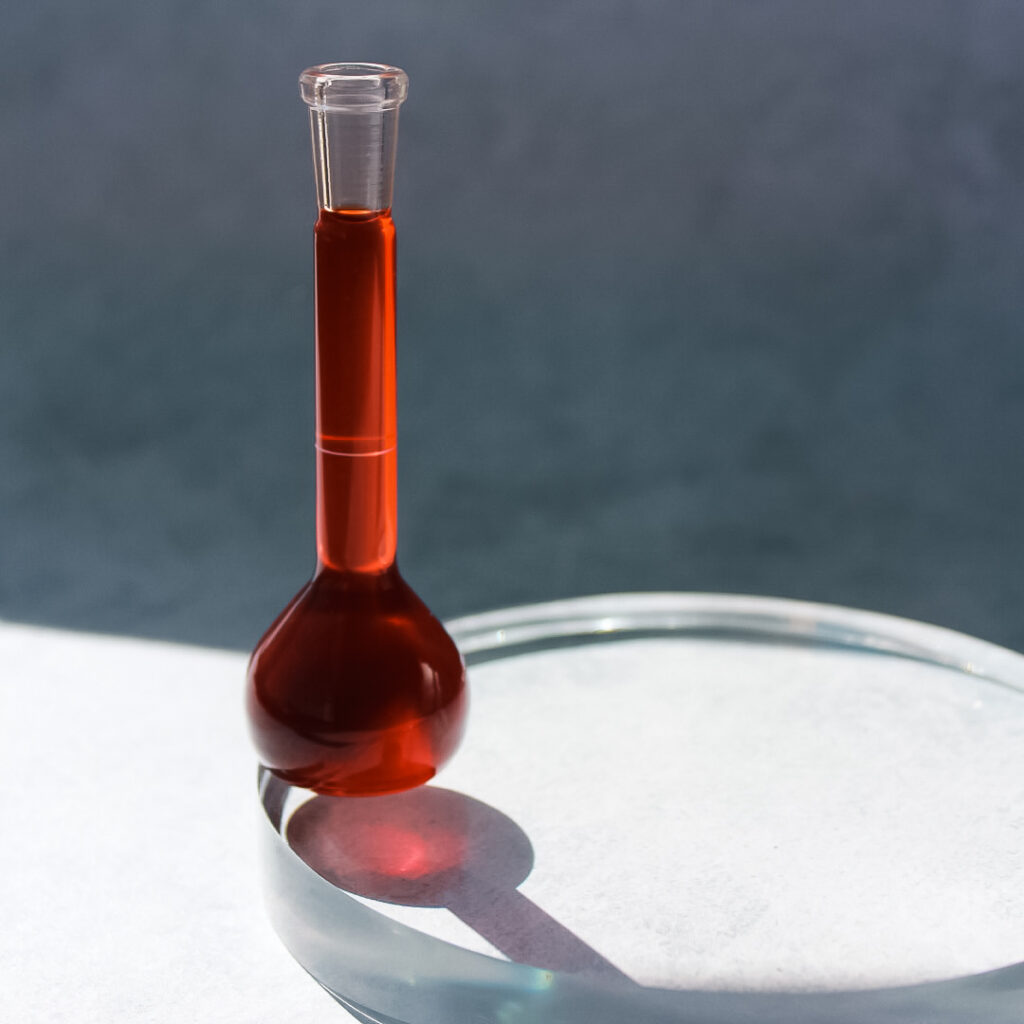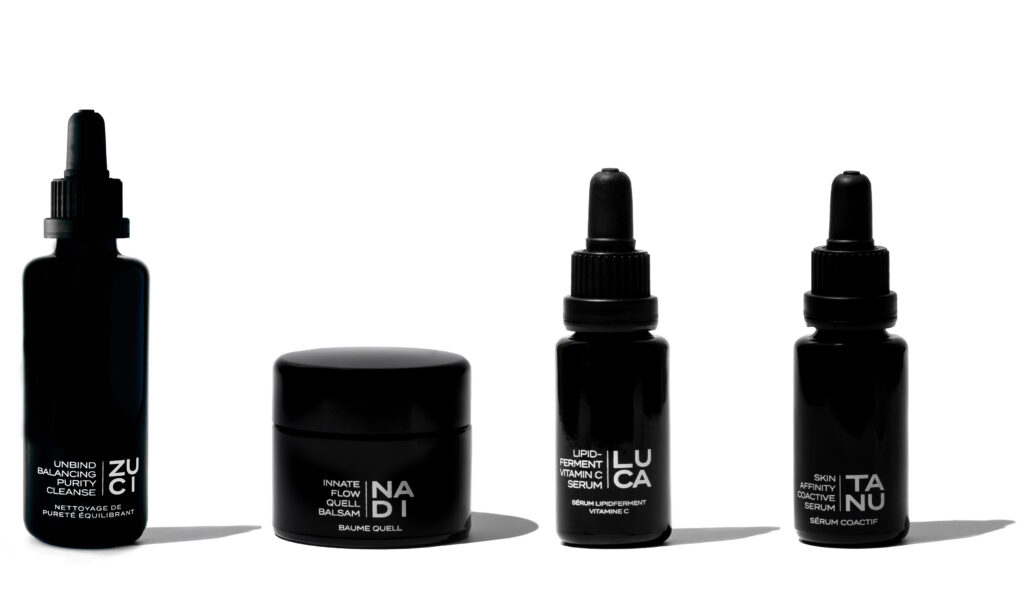What is Fermented Skincare?
Bacteria or yeast, is introduced to a cosmetic in an anaerobic environment (without oxygen) thereby fermenting the raw ingredient. Changes made by fermentation include: boosting efficacy and facilitating skin absorption. In this article, we explore the benefits of bacteria for beauty.
Fermentation is a natural way of breaking down a substance into a simpler substance, making it more powerful. The compounds become more concentrated allowing the skin to more readily accept and absorb them. This process creates supercharged ingredients.
Fermented Skincare products have a powerful active antioxidant function, fighting free radicals and strengthening the hydrolipidic film of the skin, protecting it from external environmental aggressors like pollution, and UV rays.
Lactobacillus Bulgaricus Ferment Filtrate – This is a prebiotic derived from soy and chicory with the process of fermentation yields a cosmetic extract capable of enhancing the overall function of skin cells while increasing the antioxidant activity of Lactobacillus bulgaricus.

The Benefits of Fermentation
- Potent – Fermenting a plant extract produces a far more concentrated and therefore more potent cosmetic extract.
- Sustainable – Fermentation is a natural process with no additional external resources required to create fermented extracts.
- Sensitive – Cosmetic ingredients become less irritating to the skin via the fermentation process, fermented ingredients help to strengthen the skin barrier by supporting the skin’s natural acid mantle barrier function.
Bacteria for beauty the Skin Benefits of Fermented Ingredients
- Boosting ingredient penetration into the skin
- Increasing concentration, the fermentation process helps to concentrate an ingredient
- Prolonged moisturising effects
- Increased antioxidant activity
- Improved skin texture has a silkier, and lighter skin feel with less greasiness.
Science Backed
A recent 2020 Study noted: A higher biodiversity in the skin after four weeks of treatment with a topical fermented oil. Research shows the treatment resulted in a more “beneficial” and “younger” microbial community after treatment with fermented oils.
Our Supercharged Fermented Cosmetic Ingredients
- BIO-FERMENTED HYALURONIC ACID – The small molecule of HA [hyaluronic acid] can penetrate deeply into the skin and hydrate and plump the skin instantly the long-term application can significantly increase the skin’s hydration levels keeping the skin moisturized constantly.
Relieves inflammation (irritated skin), regulates tissue repair, and assists in strengthening your skin barrier function.
FIND: NADI Innate Flow Quell Balsam - FERMENTED LIPID COMPLEX – The fermentation of Lipids converts the carbohydrates in the original oil to acid plus energy. Candida bombicola/Glucose/Methyl Rapeseedate Ferment combined with Olive Fruit Oil, Sunflower Seed Oil, Argan Kernel Oil, Angelica Root, Gromwell Root and Licorice Root, fermented at a precise, temperature-controlled in an aerobic environment for 150 hours.
- Alters the substances in plant lipids and root extracts by producing enzymes
- Produces various types of polysaccharides and lipids (Mannosylerythritol lipid MEL)
COMPOSITION OF LIPID COMPLEX
- Triglyceride
- Free Fatty Acid 4~6%
- MEL >0.5% (Glycolipids)
- α-tocopherol (Vitamin E)
- Active Polyphenols (Antioxidants)
COMPOSITION OF NON-FERMENTED PLANT OILS
- Triglyceride
- Free Fatty Acid <1%
- α-tocopherol (Vitamin E)
- Inactive Polyphenols (Antioxidants)
THE FERMENTATION PROCESS RESULTS IN:
- Non-greasy – Leaving a silky soft skin feeling
- Higher rate of skin penetration – Boosts delivery of H.P.A (High-Performance Actives)
- Emulsifying Capacity – Glycolipids with high affinity to human skin and excellent penetration, repair the skin barrier function and form a moisturizing film
- Deeply Moisturizing – Increased absorption rates assist with maintaining skin hydration by forming a protective barrier keeping the skin hydrated and defending against transepidermal water loss (TEWL)
- Free Fatty Acid – Stimulates ceramide production in the skin
- Active Anti-oxidation – Protective and reparative.
FIND: LUCA Lipid Ferment Vitamin C Serum
3. LACTOBACILLUS/WILLOW BARK BARK FERMENT FILTRATE – Lactobacillus Bacteria combined with White Willow Bark has many skin benefits:
- Decreasing the production of sebum by the skin (Tannins)
- A natural and gentle form of Salicylic Acid, Salicin in Willow Bark Extract is a much gentler version of salicylic acid offering gently exfoliation and is non-irritating
- Acne-Fighting – Helpful for acne and blemishes, by fighting the bacteria beneath the skin and reducing the production of sebum
- Improve the hydration levels of your skin – Lactobacillus bacteria can help improve hydration by strengthening the skin’s barrier and improving the skin’s ability to retain moisture
- Effective for increasing collagen type I production, which can improve skin tone and reduce the appearance of fine lines and wrinkles
- Provides protection against UV-induced damage
- Anti-inflammatory effects – Reduce skin irritation and the appearance of redness.
FIND: LUCA Lipid Ferment Vitamin C Serum, and TANU Skin Affinity Coactive Serum
Carefully selected fermented ingredients amplify the overall performance of FIFTY7KIND Products, therefore offering innovative, sustainable, holistic, luxury skincare. What are you waiting for? Get fermented and use bacteria for beauty.
Until next time, be human, be kind, be you.


Feature image: Angela Roma
REFERENCES:
- Probiotic fermentation augments the skin anti-photoaging properties of Agastache rugosa through
up-regulating antioxidant components in UV-B-irradiated HaCaT keratinocytes - https://www.ncbi.nlm.nih.gov/pmc/articles/PMC6019510/
- Fermenting Red Ginseng Enhances Its Safety and Efficacy as a Novel Skin Care Anti-Aging Ingredient:
In Vitro and Animal Study - https://www.ncbi.nlm.nih.gov/pmc/articles/PMC3491619/
- Effects of Fermented Oils on Alpha-Biodiversity and Relative Abundance of Cheek Resident
Skin Microbiota
https://www.ncbi.nlm.nih.gov/pmc/articles/PMC8494714/
Comments +